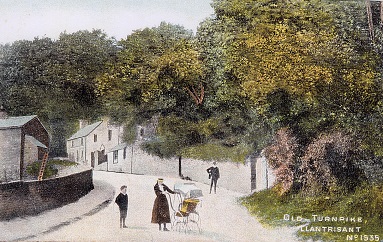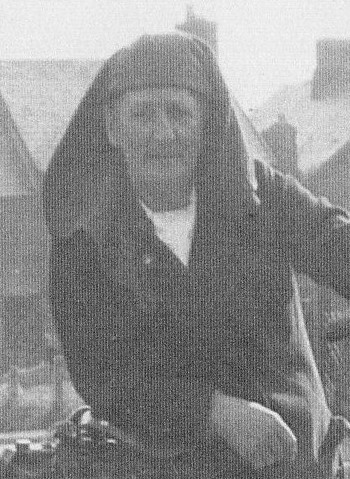 In the eighteenth and nineteenth centuries, Wales was transformed from a primarily pastoral economy into one of the world’s powerhouses of the industrial revolution.
In the eighteenth and nineteenth centuries, Wales was transformed from a primarily pastoral economy into one of the world’s powerhouses of the industrial revolution.
Its resources of copper, slate, manganese, gold, iron ore and especially coal of varying qualities were the key to industrial expansion, but mining also brought very distinctive health problems for the workpeople of the country.
Llantrisant already had a dubious reputation for its unhealthy residents and general lack of sanitary conditions. Epidemics were widespread – from the town being decimated by the Black Death through to the frequent Smallpox outbreaks of the 19th century.
In 1697 Edward Lhuyd made reference to the diet of the people of the town when he said, “Antypathy to any manner of meat and drink and I find in none but of good digestion considering their slothfulness.”
One of the town’s first doctors was Watkin Evans in 1780, listed as “surgeon and apothecary” and charged to “attend the poor and supply them with plaster and medicines” for a quarterly salary of one guinea. In August 1866 the Cardiff Times stated – “All the necessary means are being taken to have every house and corner cleansed and whitewashed in the town, although the committee cannot find time to meet so often as they ought to do in these critical times. There is hope of better arrangements for the future. In general the town is very healthy.”
In August 1866 the Cardiff Times stated – “All the necessary means are being taken to have every house and corner cleansed and whitewashed in the town, although the committee cannot find time to meet so often as they ought to do in these critical times. There is hope of better arrangements for the future. In general the town is very healthy.”
In 1875 the South Wales Daily News featured an article from John Evans the Sanitary Inspector, Pontypricld Rural Sanitary Board: "Near the Fox and Hounds about ten, and in the vicinity of the Cross Keys some fifteen, houses are absolutely without water-closet accommodation. That in Sarn Street nearly a dozen houses are totally unprovided with pivy accommodation.
"A number of houses, computed at 30 are absolutely without closet and that from the George to the top of High Street there are twenty-five houses without sanitary conveniences.
"Overcrowding is an issue. In numerous instances accommodation is worked on the double shift system, and there are a couple of lodging in one of which some twenty persons are nightly huddled together.
"The water from this Town Pump is hard, too hard in fact to be generally used for drinking purposes, and it was not so used except by a very few persons indeed. The statement that some cases of typhoid fever had appeared from drinking this water is unsubstantial".
A correspondent wrote a letter to the local newspaper in 1882 which read: "As dirty as the streets of Llantrisant” is an exclamation that has now almost passed into a proverb, and I really wish you would call attention to this matter to see whether our local authority, the Rural Sanitary Board, will not do something to save us from being drowned in a sea of mud, a fate which, I fear, awaits us at Llantrisant."
Clearly the town was suffering from a lack of clean sanitation and local physicians and surgeons tackled all manner of illnesses as a cause of these conditions.

By the end of the century Dr Naunton Davies was the local general practitioner at a time when some residents preferred to seek advice from Dr William Price at Ty’r Clettwr. Dr William Davies succeeded him and lived at Llantrisant Cottage where he also held a surgery.
A pharmacy was run from Ty Plocyn on the Southgate which was later run by Marcus Rees. A short distance away and Dr J C R Morgan built his Southgate House with its on clinic in the basement.









